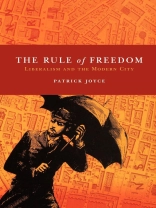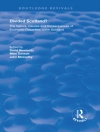The liberal governance of the nineteenth-century state and city depended on the ‘rule of freedom.’ As a form of rule it relied on the production of certain kinds of citizens and patterns of social life, which in turn depended on transforming both the material form of the city (its layout, architecture, infrastructure) and the ways it was inhabited and imagined by its leaders, citizens and custodians.
Focusing mainly on London and Manchester, but with reference also to Glasgow, Dublin, Paris, Vienna, colonial India, and even contemporary Los Angeles, Patrick Joyce creatively and originally develops Foucauldian approaches to historiography to reflect on the nature of modern liberal society. His consideration of such ‘artifacts’ as maps and censuses, sewers and markets, public libraries and parks, and of civic governments and city planning, are intertwined with theoretical interpretations to examine both the impersonal, often invisible forms of social direction and control built into the infrastructure of modern life and the ways in which these mechanisms shape cultural and social life and engender popular resistance.
Про автора
Patrick Joyce has become known, through books including Visions of the People, Democratic Subjects and The Oxford Reader on Class, as a leading social and cultural historian, as well as one of the chief exponents of postmodernist thought in history. He is Professor of Modern History at Manchester University.












